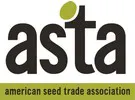Dr. Margaret Leigh Worthington, University of Arkansas System Division of Agriculture (UADA), testified this morning on behalf of the American Seed Trade Association (ASTA) at a U.S. Senate Subcommittee on Food and Nutrition, Specialty Crops, Organics, and Research hearing on the Horticulture Title of the Farm Bill. An Associate Professor of Horticulture and Director of the UADA Fruit Breeding Program, Worthington spoke to the need for innovation in seeds and plants – especially in small acreage, high-value specialty crops, which face unique challenges and have not previously been able to fully utilize the potential of the latest breeding tools due to the high cost and associated regulatory burdens.
“Universities and companies alike are utilizing gene editing tools in research projects across all plant species for a range of needed applications benefiting farmers, consumers, and the environment – from disease resistance and drought tolerance to added nutritional benefits, better taste, and food safety,” said Worthington. “These crops are critical to complement staple crops in providing essential nutrition and health to the U.S. population.”
Worthington cautioned that while many countries are moving forward with streamlined policies to advance and democratize the use of innovative plant breeding tools like gene editing, the U.S. is falling behind. For example, she cited the U.S. Environmental Protection Agency’s (EPA) final rule—published less than two weeks ago—on plant-incorporated protectants (PIPs), which “is causing a great deal of concern in the plant breeding community.”
“While the goal of EPA’s rule is to streamline its regulatory system, it instead stifles innovation by adding bureaucratic layers of red tape for certain plants produced through modern, precision breeding tools, simply based on the method used to create them – despite the fact that the agency views those plants as posing no greater risk than their conventionally-bred counterparts,” she explained.
“These unnecessary regulatory burdens will unfortunately only serve to increase the cost and time of getting new, improved varieties in the hands of our farmers. Many public sectors and small- and medium-sized entities, especially those working in small acreage crops, will not be able to afford the additional cost. All of this will force additional consolidation in the industry; investments in future innovation will be limited to a handful of crops and a handful of companies.”
In addition to plant breeding, Worthington spoke to the importance of other critical agriculture innovations, including precision seed treatments, which allow farmers to increase productivity while using fewer resources, and new and emerging biostimulants, which can help mitigate or reduce GHG emissions, conserve and replenish soil health, and improve water quality. Clear, science-based policies and robust research investments are needed to realize the full potential of these and other innovative tools in contributing to a more sustainable and secure future for food and agriculture.
“Better seed and better plants are generated through innovation, and innovation is a direct result of strong investments in agricultural research,” stressed Worthington. “Research investments, from discovery through development, lead to better varieties, which means better outcomes for farmers, consumers, and the environment, in the short and long term.”
For more information: American Seed Trade Association
American Seed Trade Association
info@amseed.org
www.amseed.org
